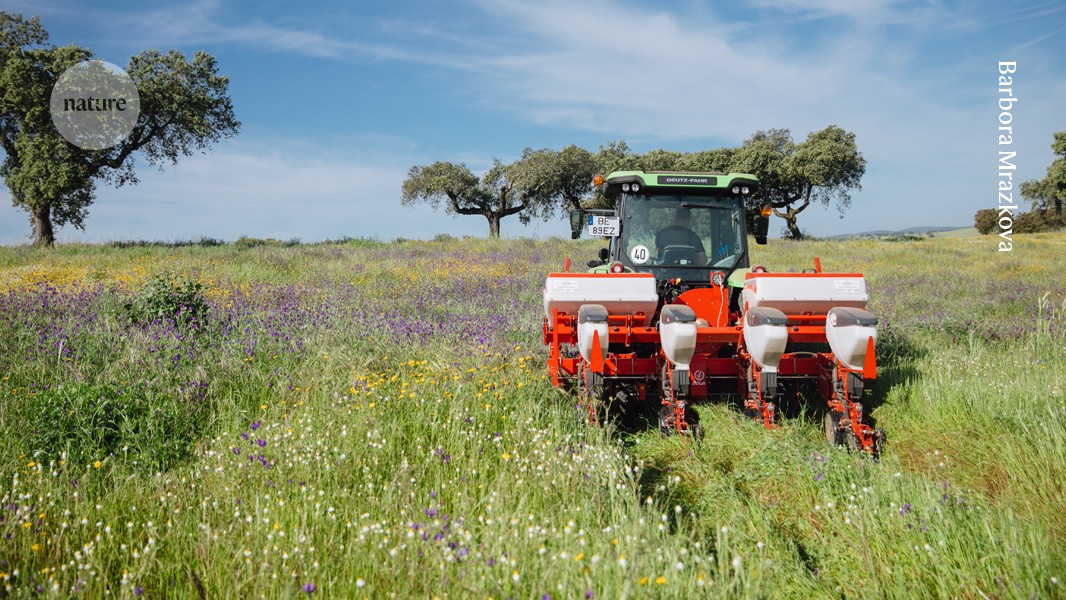
"Between the rows of chestnut and pistachio saplings, a mix of grasses covers the ground where a stretch of bare dirt would typically be - a deliberate attempt to prevent erosion. To retain water, Jorge has wrapped a blanket of wood chips around the base of each sapling. And among the young trees grow yellow lupin flowers, known as tremocilha in Portuguese, that have a special power: they capture nitrogen and store it underground."
""It's a natural fertilizer," Jorge says, looking out over the field of chest-high saplings under an intense springtime Sun. The flowers, mowing and mulch are part of Jorge's transition to regenerative agriculture, a method of farming that prioritizes soil health, boosts biodiversity, minimizes tilling and uses pesticides sparingly. "Anything that we can do that adds resilience to the land, that preserves this land for the future, is always a better option," Jorge says, "as long as it's economically viable, of course.""
"The future is coming hard at Europe - the fastest-warming continent on the planet since the 1980s. In just the past few years, farmers on the Iberian Peninsula have struggled with shrivelled crops, shrinking water supplies and more-frequent wildfires. Going forwards, the economic hit to the European Union and the United Kingdom from drought alone could reach more than €65 billion (US$76 billion) each year by 2100, in part because of crop damage and lost water supplies."
Ruben Jorge practices regenerative agriculture by using cover grasses to prevent erosion, wood-chip mulch to retain moisture, and yellow lupin (tremocilha) to fix nitrogen beneath chestnut and pistachio saplings. Regenerative farming emphasizes soil health, biodiversity, reduced tilling and limited pesticide use while maintaining economic viability. Europe has warmed rapidly since the 1980s, and Iberian farmers are experiencing shrivelled crops, dwindling water supplies and more frequent wildfires. Drought-related losses to the EU and UK could exceed €65 billion annually by 2100. Without mitigation or adaptation, projected warming of about 4°C may reduce southern and western European agricultural output by roughly 10%.
Read at Nature
Unable to calculate read time
Collection
[
|
...
]